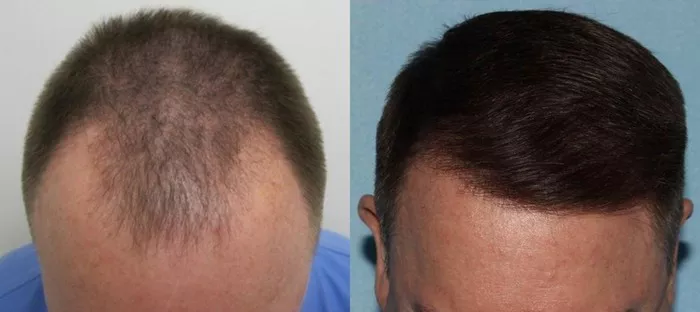For individuals grappling with hair loss, the prospect of a hair transplant can be a ray of hope. However, not everyone is an ideal candidate for this procedure, and certain factors may deem a person ineligible. This article delves into the critical question: at what stage is a hair transplant not possible? By exploring the key considerations, we aim to provide insights into the factors that may impact the feasibility of a successful hair transplant.
Early Intervention vs. Advanced Hair Loss:
The success of a hair transplant often hinges on the stage of hair loss at which the procedure is considered. Early intervention, when hair loss is minimal, generally yields more favorable outcomes. At this stage, there is typically enough donor hair – often from the back and sides of the scalp – to effectively cover the areas experiencing hair loss. As hair loss advances, the availability of viable donor hair may diminish, affecting the feasibility of a transplant.
See Also: Does FUE Hair After Transplant Look Natural: A Full Guide
Extent of Donor Hair:
A crucial factor in determining the feasibility of a hair transplant is the availability and quality of donor hair. The donor area serves as the source of grafts for transplantation, and its adequacy directly influences the success of the procedure. If the donor area lacks sufficient healthy hair follicles or if the hair quality is compromised, it may limit the potential success of the transplant.
Progressive Hair Loss:
Hair loss is often a progressive condition, and predicting its course is challenging. Individuals experiencing ongoing hair loss may find that the transplantation of hair into one area today may not prevent hair loss in adjacent areas tomorrow. Therefore, a careful assessment of the pattern and rate of hair loss is crucial in determining whether a hair transplant is a viable long-term solution.
Advanced Age and General Health:
While age alone is not a definitive factor, advanced age can impact the overall health of hair follicles and the ability to recover post-surgery. Additionally, an individual’s general health plays a significant role. Conditions such as uncontrolled diabetes or certain autoimmune diseases may hinder the body’s ability to heal properly, making a hair transplant less feasible. A thorough medical evaluation is essential to ensure that a candidate is in good health and can withstand the surgical process.
Expectations and Realistic Outcomes:
Before considering a hair transplant, it is crucial for individuals to have realistic expectations regarding the potential outcomes. While modern transplant techniques have evolved significantly, achieving a completely natural look may not be feasible in all cases. An open and honest discussion with a qualified hair transplant surgeon can help set realistic expectations based on individual circumstances.
Scalp Conditions and Scarring:
Certain scalp conditions, such as psoriasis or dermatitis, may complicate the transplantation process. Additionally, extensive scarring from previous surgeries or injuries can impact the availability of suitable donor areas. In such cases, the feasibility of a hair transplant may be compromised, and alternative solutions may need to be explored.
Assessment by a Qualified Professional:
Ultimately, the determination of whether a hair transplant is possible should be made by a qualified and experienced hair transplant surgeon. These professionals conduct thorough assessments, considering factors such as the pattern and extent of hair loss, donor hair availability, overall health, and the presence of any contraindications. A comprehensive evaluation ensures that the procedure is tailored to the individual’s specific circumstances, optimizing the chances of a successful outcome.
Alternatives to Hair Transplant:
For individuals who may not be suitable candidates for a hair transplant, there are alternative solutions to address hair loss. Non-surgical options, such as topical medications and laser therapy, may offer some benefit in slowing down or reversing hair loss. Additionally, innovative developments in regenerative medicine may provide future alternatives for hair restoration.
Conclusion:
In conclusion, the feasibility of a hair transplant depends on various factors, including the stage of hair loss, the extent of donor hair, overall health, and individual expectations. While early intervention often yields more favorable results, advancements in hair transplant techniques have broadened the scope for individuals at different stages of hair loss. A thorough assessment by a qualified professional is essential to determine whether a hair transplant is a viable and effective solution for an individual’s specific circumstances.
Understanding the limitations and potential challenges is crucial for making informed decisions about hair restoration. By consulting with a knowledgeable and experienced hair transplant surgeon, individuals can gain valuable insights into the possibilities and limitations of the procedure, ensuring a realistic and tailored approach to addressing their unique hair loss concerns.


